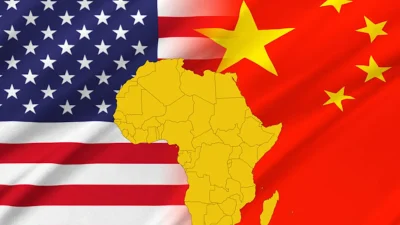President Trump on February 10 signed an executive order instructing DOJ to pause the enforcement of the Foreign Corrupt Practices Act (FCPA), law that makes it a crime to bribe foreign officials for doing business, such as winning contracts. The argument is that US businesses are at a disadvantage compared to companies from other countries that engage in such practices.
First, business and procurement practices in foreign location are usually different than what is typical in the United States. Illicit payments and influence are commonplace. In this respect, US companies do, in fact, face a severe disadvantage. My personal experience is in low income and developing countries, but conditions can be generalized further up the food chain to make several key points.
Most (but not all) American companies don’t “pay to play” in foreign markets for several reasons. For many, minimum standards of business integrity and ethics lead many companies to conclude, “there are many was to make money, I don’t have to do that.” For other US companies, FCPA is a (convenient) guardrail, regardless of morality. The thinking is often, “Most of my business is in the United States, often times with the US Government. I am not going to risk being disbarred on my core business just to win a few peripheral contracts in high-risk areas.” More often, US competitiveness is hurt by American companies simply being more expensive than foreign competition. Also, US companies are private and not under the direction of the state, so they don’t venture into foreign markets for the national interest or under the direction of the Government. The bottom line is that American companies are disadvantaged.
That said, Americans have several distinct advantages– and are well positioned in several sectors. Foremost is that we are American. Almost always, Americans come into foreign locations with built-in credibility for quality and decent business practices. We are different. Foreign governments and companies want to do business with US firms because we usually avoid acting either like a colonialist or predator – both of which the foreigners hate yet get all the time. They feel like they can deal with American companies with a lower chance of getting ripped off. Americans are willing to make deals and usually treat foreign counterparts as business partners rather than prey.
My dad used to tell me, “If you don’t know what you’re doing, do it neatly.” The Trump Administration has correctly put its finger on a real problem, as it often does. But it is also rushing to trash the existing structure without a clue for what should take its place … also as it often does.
Our biggest global competitor is, of course, China. The Chinese are masters of sliding the brown envelope across the table. A foreign manager not getting a new house or sending kids private university on the receipt of Chinese cash didn’t get the memo. Most other countries do the same (except the Brits). I have a long list of how corruption happens in foreign locations, but that is a blog for another day. Needless to say, most illicit deals create space for the cost of bribes either through inflating prices, cutting corners on the project, or imposing horrible terms for financing – or all of the above.
The Administration is doing no favors for US competitiveness by suspending FCPA. We are Americans. We can’t win by trying to “out-Chinese” the Chinese. They are predators in the global business arena, and everyone knows it. Lie, cheat, and steal are as beloved as General Tso’s chicken. From construction to mining to infrastructure to services, they swim in the waters of dysfunctional foreign locations because that’s where they thrive – and they want to keep it just the way it is.
Trading our high ground so we can go dumpster diving against professional dumpster divers only puts us further behind and weakens a long-earned American reputation, which is not easily recovered. American businesspeople don’t want to walk into a conference room and be looked at from across the table the same way the locals look at the Chinese. That’s creepy. I believe in American Exceptionalism; but to leverage our exceptionalism, we actually have to be exceptional.
We can maintain our American integrity while creating better conditions to compete without handicapping US businesses. Smart people can produce a laundry list of great ideas that can help, but let me offer a few:
Emphasize sectors and projects where US companies have distinct advantages. We are never going to win road projects or other low-to-medium tech gigs. We thrive further up the learning curve in higher tech projects: intricate infrastructure, operations and maintenance, engineering and simulation, financial services, sophisticated goods and services, etc. We should also push hard on the long-term value of life-cycle costs (where the US excels) rather than merely counting the start-up costs of lower quality options. In other words, play to our commercial strengths.
Washington can emphasize US-based financing, either commercially or through programs that already exist within the USG. We already have the US Export Import Bank, Development Finance Corporation, transaction advisory services for power and infrastructure, commercial officers working out of our embassies promoting US businesses, etc. A few years ago, congressional conservatives proposed gutting these agencies because purists didn’t like that they distorted the market. Purists don’t live in the real world. We should, in fact, distort the market … in our favor! Frankly, however, this toolbox of US instruments is better on paper than it is in practice. They are anemic compared to their Chinese equivalents, which are vastly bigger, more aggressive, less bureaucratic, and much faster. We should put our instruments on steroids if we want to effectively promote US commercial interests.
And yes, FCPA should be updated (not gutted) to allow more flexibility to US companies to do their own engagement. The law should be reoriented to what US businesses are allowed to do rather than solely taking a punitive approach. For example, US business developers should be able to spend money to engage foreign counterparts, such as paying for trips to US headquarters and demonstration sites; paying for scholarships at US training centers and universities; allow payments for facilitation of required registrations, certifications, etc.; plus allow local partners (who know their country better than we do) greater latitude in dealing with their cousins on the ground. Lawyerly types can come up with twenty more provisions that would be welcomed without resorting to the greasiness of bribes, kickbacks, and extortion.
I have witnessed US firms getting stiff-armed in foreign transactions for over 20 years. We win occasionally, but it’s hard. Too hard. American businesses are hamstrung. They need real, bold, and robust USG tools as well as greater ability to put our American comparative advantages on the table. We must not, must not, must not force our companies to play the slimeball games of the unexceptional. That is lose-lose.





